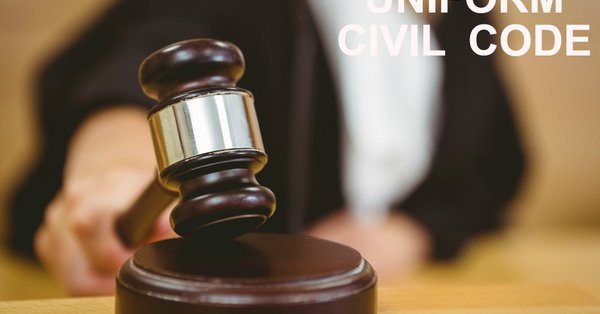New Delhi: Article 25 of the Indian Constitution is a fundamental right to practice one’s own religion India being secular nation, the constitution currently allows, that being said, this article that allows different communities throughout India to follow their own personal laws, is now gravely under threat with the ruling Party deliberately making efforts for the past two decades, making it there main objective to bring in a Uniform Civil Code.
India is a secular nation, allows all communities to follow their own personal law for marriage, divorce, inheritance and succession, adoption and other important practices based on their Religions leaving them free choice to willingly practice their religion.
The Law Commission of India has issued a fresh appeal to citizens for public comments on the Uniform Civil Code (UCC) to be submitted by April 6, have yet again stirred the discussions on fire.
“Any individual/organisation (governmental or non-governmental) may send their submissions in the form of consultation/discussion/working papers, on any of the issues pertaining to Uniform Civil Code (except the issue relating to triple talaq, which is pending before Parliament) to the Member Secretary, Law Commission of India,” the panel said in a message posted on its website.
The Commission further said that “if the Commission needs further clarification on any submission(s) so made, the individual/organisation or other stakeholders may be called for a personal hearing/discussion”.
Back in June 2016, the then Law minister DV Sadananda Gowda had reportedly sent a reference to the Indian Law Commission asking the Commission to examine whether it was time to ITS SIGNIFICANCE enforce a uniform civil code in India.
The 21st Law Commission headed by Justice BS Chauhan’s term is ending on 31 August and the commission is supposed to submit its report before the term ends.
Speaking to HT, Justice BS Chauhan said that if the commission could not up with a composite code, it would then suggest “piecemeal” or the legislative changes to family laws of different religions.
Debating over the controversial issue of enforcing a common civil code, the Law Commission in 2016 received 60,000 responses from public and political parties, who have refrained from giving a direct response to the commission.
While many Opposition Parties have clearly stated the exercise as biased one the All Indian Muslim Personal Law Board (AIMPLB) clearly said they would boycott the whole exercise since it is interfering with Islamic Personal Laws and the Sharia.
AIMPLB had met the officials from the Law Commission in October 2016 to state their objection, later on held a conference of the same.
The All India Majlis-e-Ittehadul Muslimeen (AIMIM) party’s only one Lok Sabha MP and President Asaduddin Owaisi has written the letter to the Law Commission stating this exercise is an attempt to interfere in Muslim Personal Affairs.
While Congress has described this opposition’s move as “politically motivated,” Communist Party of India (Marxist) clearly said it would not participate in the “biased” exercise.
Shiromani Akali Dal also warned against the exercise.
BJP on the other hand, the biggest supporter of enforcing UCC has not responded but the party’s 2014 manifesto clearly mentioned its commitment “to draft a Uniform Civil Code, drawing upon the best traditions and harmonising them with modern times,” the same main objective was also included in party’s manifestos of 2009, 2004 and 1998.
Whereas the Civil society appears divided on the subject with many suggesting reforms to the personal laws, making them progressive and gender sensitive.
While a group of eight citizens submitted their draft of the code of commission rejecting the targeting of religions, sexual and social minorities.

